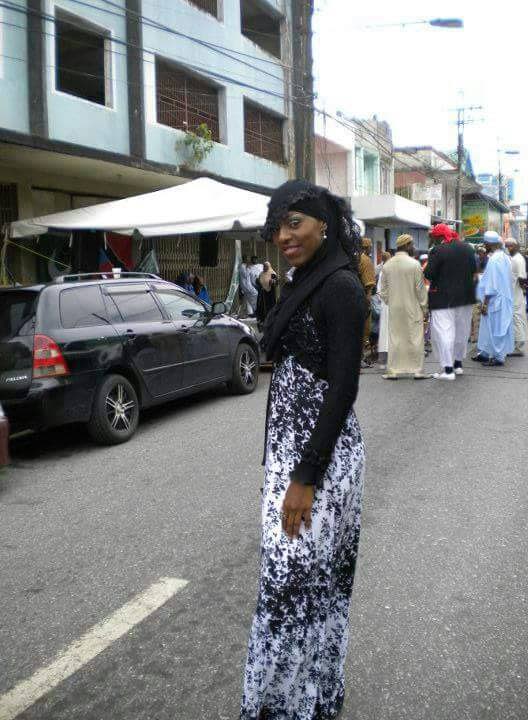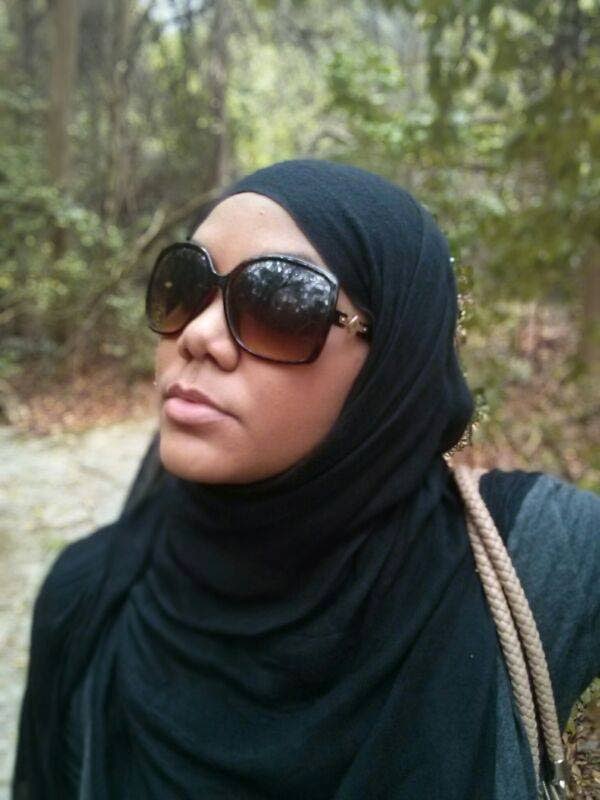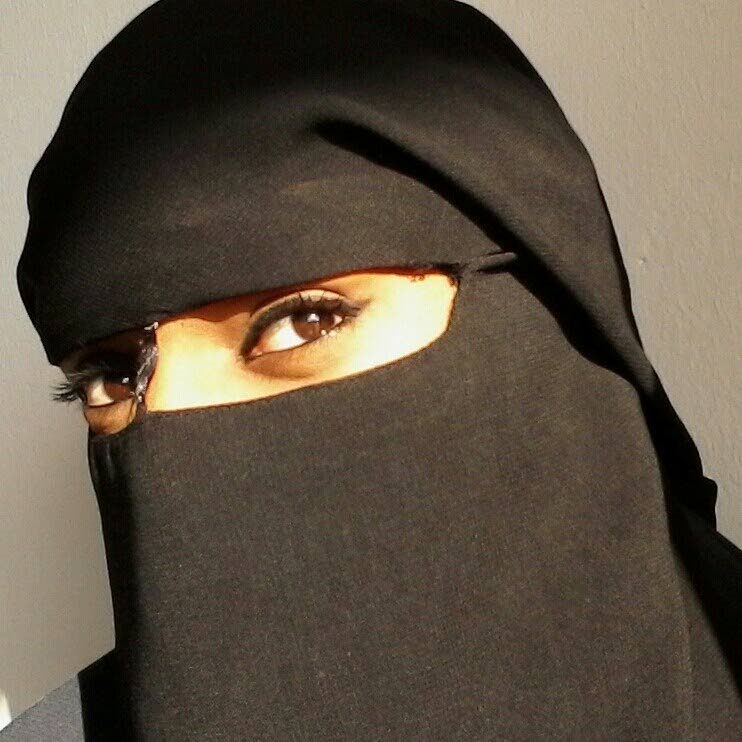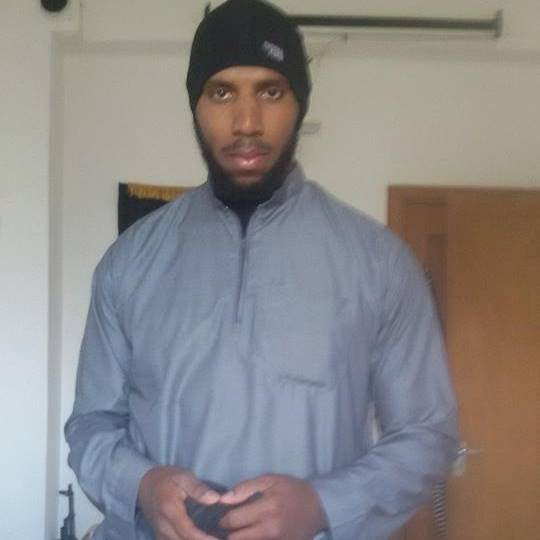Trini, Bajan woman on life with ISIS: We thought it was irie

SIMON COTTEE
Aliya Abdul Haqq, one of the hundred or so TT citizens currently stranded in the Al Hol camp in Syria, recently told two foreign journalists that life inside the ISIS caliphate was “irie” – a Jamaican expression for nice or cool. Abdul Haqq, 34, is the sister of Tariq Abdul Haqq, a former lawyer and Commonwealth Games boxing finalist who traded his enviable life in Trinidad for war and death in Syria.
Abdul Haqq was interviewed alongside Abbey Greene, 33, who is from Barbados and was married to Abdul Haqq’s brother Tariq.
If you want to know what an unrepentant female ISIS member sounds like, you could do worse than listen to the Popular Front podcast interview with these two sisters. It makes for spine-tingling listening, not because the women sound like bloodcurdling monsters, but because of the cold and carefree detachment with which they talk about the genocidal violence of the Islamic State.
And if you’re a proud Trini you’ll no doubt be disconcerted to hear that Abdul Haqq doesn’t share your national pride, and is sharply critical of her country of birth.
Abdul Haqq and Greene travelled to Syria in November 2014 with their respective husbands, Osyaba Muhammad and Tariq Abdul Haqq. While 240 TT citizens travelled to Syria between 2013 and 2016, Greene, to my knowledge, is the only Bajan to have gone to join ISIS.

“We came (to Syria) with our husbands, we made hijrah (migrated) to live under the Islamic State, under the law of Islam, and we basically followed our husbands,” says Greene.
Miraculously, both women survived the slaughterhouse of Baghuz, the last sliver of the ISIS caliphate, which fell in March 2019.
Abdul Haqq says before leaving TT she was never radical.
“I was into makeup, piercings and all these crazy things, which I still like.” It wasn’t until after her father died – Yacoob Abdul Haqq was accidentally shot and killed in May 2013 – that she and her family “made this big turnaround.”
Tariq, in Abdul Haqq’s telling, spearheaded this metamorphosis: “My brother came home one day and he said he was going to Syria.
“I started laughing,” she recalls, but within months she had come round to his way of thinking, because in Syria, “it’s strict sharia, which is what I like, so I said, ‘Let me try and see what Syria is about.’”
It is an oddly blasé way of describing what must have been a momentous life decision.
Asked what life was like when she first arrived in Syria, Abdul Haqq relays that she was based in Raqqa, then the de-facto capital of the caliphate.

“It matched pretty well (my expectation). There were airstrikes, but it was really mild, so it was still very much like my country (TT). But under sharia, it wasn’t extreme then…It was normal life, we had tea parties, pyjama parties, it was really irie…cool, calm.”
Apparently, she deliberately avoided seeing the public beheadings that were a regular feature in the city back in 2014, but admitted her son had been exposed to several and that it had a violent effect on him.
Do these women have any regret over following their husbands to Syria and for all that ISIS has done?
Not one bit, it seems.
In fact, at several points in the interview, when Abdul Haqq and Greene are questioned about ISIS’s extreme violence against civilians and the rape and sexual enslavement of Yazidis, their default response is either to dodge the question or to rationalise ISIS’s violence as a legitimate response to the violence meted out against ISIS.
They are still clearly bitter about the loss of Baghuz.
“It was a madness, a massacre,” Abdul Haqq says, adding, referring to the SDF (Syrian Democratic Forces), “They bombed the orphanage, they bombed a children’s hospital.”
Greene concurs: “The killing has come from both sides.”
What about the beheading of western hostages?
“I don’t know…The men deal with this,” says Abdul Haqq.
Did the brutality of ISIS cause them to rethink their commitment to the group? This question prompts a long pause.
Then this from Greene: “I really don’t think about that question.”
On the sexual enslavement of Yazidi girls and women, Abdul Haqq confides that she had met two Yazidi women in Raqqa: “They were slaves to a Bosnian guy…and from what (one of them) told me, she said she really loved her slave-master, and she accepted Islam.”
What about ISIS’s systematic killing of Yazidi men – what can justify that?
More silence. Then Greene repeats what has become a mantra for her: “For me, this war is never-ending, and it’s on both sides.”
When probed about slavery, Greene seemed reluctant to condemn it outright, insisting: “Slavery in Islam is not like slavery back in the day — there are certain rules you have to follow, you have to show rahma (mercy), you must feed them, take care of them.”
It is a matter of historical record that ISIS militants did not just enslave Yazidi women and girls, but also violently raped them as part of an official genocidal policy. In TT, a group called the Concerned Muslims of T&T has been calling for the repatriation of all Trini women and children detained in Syria and Iraq, but Abdul Haqq and Greene do not seem particularly desperate to return to the Caribbean. Abdul Haqq is particularly hard on Trinidad: “You know now the crime rate in my country is spiralling, gangsterism and all of this gay and lesbianism craziness, gang-warfare – it’s so crazy.
“I just want peace,” she adds.
“I want a normal life,” says Greene.
Do these women deserve either peace or a normal life after joining a group that had nothing but contempt for the peace and life of so many others? And if they are eventually to return to TT and Barbados, what consequences should they face for joining one of the world’s most violent terrorist groups?
These are difficult questions and there is little appetite on the part of the current TT government to actively assist in the repatriation of ISIS-affiliated Trini women and children.
The testimony of Aliya Abdul Haqq and Abbey Greene is unlikely to convince it to change its non-committal stance on the issue.
Simon Cottee is a senior lecturer in criminology at the University of Kent, UK, and a contributing writer to The Atlantic.




Comments
"Trini, Bajan woman on life with ISIS: We thought it was irie"